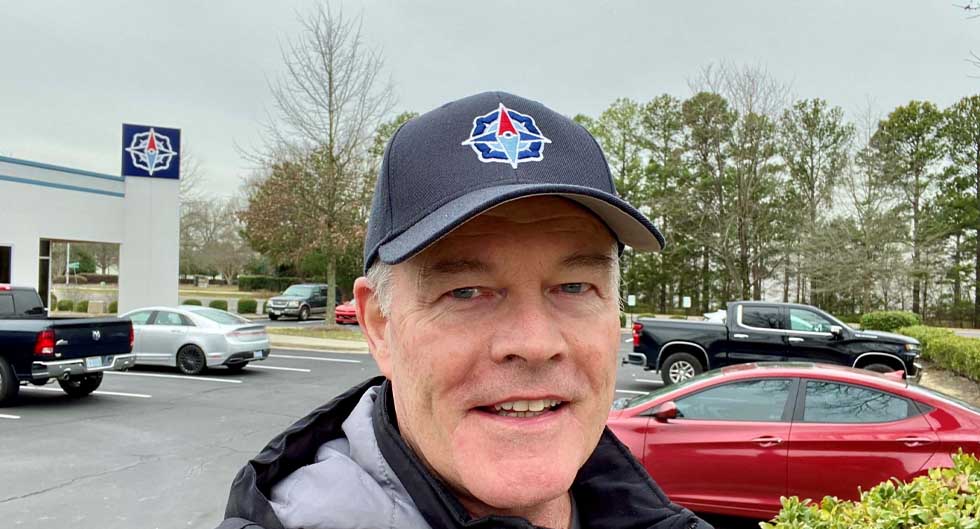Eight Shops Together Better than Eight Shops by Themselves
Compass Precision would seem like an amalgamation of precision CNC machine shops, thrown together through financial engineering by modern versions of Andrew Carnegie and J.P. Morgan. The company’s Pittsburgh connections reinforce that notion. But CEO Gary Holcomb disputes this, having strong ideas about “one plus one equaling more than two” unity. We sat down with him recently and learned the following:
Is Compass A Roll Up of Machine Shops, or Something Entirely Different?
Hard for me to argue that we aren’t a type of roll up, since obviously we are growing through acquisition. Buying eight shops in four years certainly satisfies the definition. But when we do an acquisition, we are more concerned with how the new shop fits into our cadre of capabilities than the initial sales and profits it brings immediately. Financial engineering is often focused on trailing, or historical, financial performance. That is important to us, too. But we won’t do an acquisition unless the combination of the new shop and our existing shops will be better for our customers, employees, and shareholders than they were before this acquisition.
You Are Talking About Acquisition Synergies, Right?
Actually, I hate the word “synergy”. No offense to my financially oriented friends, but practically every deal done in this country today is hyped by “value creating through combination of assets”. This is business speak for raising profits by cutting headcount, consolidating facilities, and eliminating redundant activities. Some corporations are using this strategy in the machine shop industry. But not Compass.
So What Is Compass Doing?
Hahaha… thanks for the softball-down-the-middle question. Compass acquires really good companies, the ones employees love working for and customers love as suppliers. Then, we work really hard to transform these shops into great companies. Part of this effort capitalizes on the advantages Compass offers to these new acquisitions. Benefits include customer access, new equipment, process knowledge, and hiring expertise. We create value by building upon good companies, not ripping up mediocre ones.
Have You Ever Acquired A Shop You Could Not Make Better?
At the risk of sounding pompous, no. But let me explain. Even the very best professional athletes are average or less at something. So too is the case with high performing organizations. There is always something where the rest of Compass can add value. But the opposite is also true. Namely, the rest of Compass benefits through association with the latest add-on. Examples are similar to the types of value creation we just discussed. These include access to customers we did not serve before, machinery and processes we did not previously have, and of course adding talented new employees who may end up rising through the organization in multiple shops.
Can You Give Up Some Examples?
Another easy question. Take Bergeron Machine, our latest add-on, for example. In addition to being a great shop, we were attracted to them because they specialized in Swiss machining, a process we did not have. Since this acquisition, we have been able to supply precision Swiss machined parts to several long-time Compass customers that needed them. And staying with Bergeron, they came to us with no ERP system, no website, weak financial controls, and a major missing piece in their management structure. We quickly applied our knowledge and abilities in these areas, transforming weaknesses into strengths. And we did all these things without heavy centralized oversight. Our people on the front lines recognized the opportunities and made them happen.
So, Why Isn’t Every Rollup Platform Doing What Compass Does?
The answer to that lies in the expertise and background of management. Most organizations acquiring machine shops are headed by individuals with strong financial acumen, but limited hands-on operating experience. These managers do what they are comfortable with, namely improving profits by attacking costs. Our Compass managers do that, too. But since nearly all of us have programmed and run CNC machines, done estimating and quoting, called on customers, and managed machine shops, our playbook is much bigger. It is easier for us to recognize opportunities to make improvements everywhere by understanding how and why some shop in our network does something better than everyone else. Sometimes, we are the teachers. And sometimes, we are the students.
Finally, How Does Your Strategy Benefit Customers?
Been waiting to talk about this all day. When a customer does business with a Compass shop, it is engaging with seven other shops behind the scenes, and a corporate management group that rose up through the machine shop ranks. We love what we do. We are competent to do most things right the first time, and confident enough in ourselves to admit when we have questions and concerns. We use all of our resources, no matter where they are, to serve customers from whichever shop of ours they choose as a supplier. I think our customers like that.
For more information about Compass, and its strategy of eight shops being greater than the sum of their parts, please contact CEO Gary Holcomb directly at [email protected].


